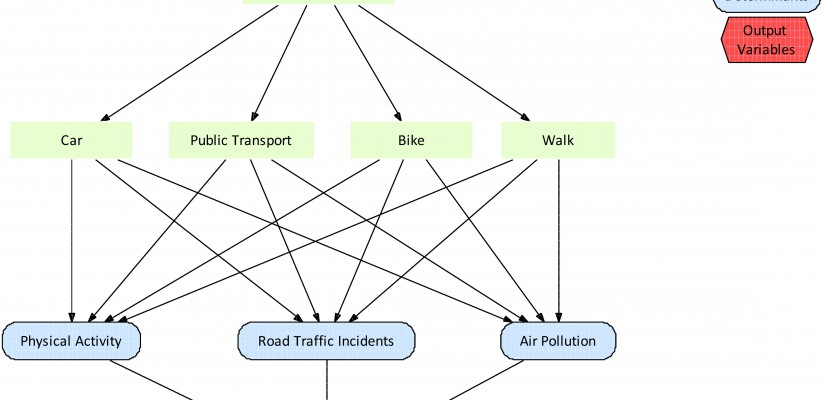Health Impacts of Active Transportation in Europe / David Rojas-Rueda, Audrey de Nazelle, Zorana J. Andersen, Charlotte Braun-Fahrländer, Jan Bruha, Hana Bruhova-Foltynova, Hélène Desqueyroux, Corinne Praznoczy, Martina S. Ragettli, Marko Tainio, Mark J. Nieuwenhuijsen
Health Impacts of Active Transportation in Europe / David Rojas-Rueda, Audrey de Nazelle, Zorana J. Andersen, Charlotte Braun-Fahrländer, Jan Bruha, Hana Bruhova-Foltynova, Hélène Desqueyroux, Corinne Praznoczy, Martina S. Ragettli, Marko Tainio, Mark J. Nieuwenhuijsen. – PLoS ONE 11(3) 2016 : e0149990. – 14 p. – PDF, 1,4 MB. Open Access. doi:10.1371/journal.pone.0149990
Policies that stimulate active transportation (walking and bicycling) have been related to heath benefits. This study aims to assess the potential health risks and benefits of promoting active transportation for commuting populations (age groups 16–64) in six European cities. We conducted a health impact assessment using two scenarios: increased cycling and increased walking. The primary outcome measure was all-cause mortality related to changes in physical activity level, exposure to fine particulate matter air pollution with a diameter <2.5 μm, as well as traffic fatalities in the cities of Barcelona, Basel, Copenhagen, Paris, Prague, and Warsaw. All scenarios produced health benefits in the six cities. An increase in bicycle trips to 35% of all trips (as in Copenhagen) produced the highest benefits among the different scenarios analysed in Warsaw 113 (76–163) annual deaths avoided, Prague 61 (29–104), Barcelona 37 (24–56), Paris 37 (18–64) and Basel 5 (3–9). An increase in walking trips to 50% of all trips (as in Paris) resulted in 19 (3–42) deaths avoided annually in Warsaw, 11(3–21) in Prague, 6 (4–9) in Basel, 3 (2–6) in Copenhagen and 3 (2–4) in Barcelona. The scenarios would also reduce carbon dioxide emissions in the six cities by 1,139 to 26,423 (metric tonnes per year). Policies to promote active transportation may produce health benefits, but these depend of the existing characteristics of the cities. Increased collaboration between health practitioners, transport specialists and urban planners will help to introduce the health perspective in transport policies and promote active transportation.
This work is part of the European-wide project Transportation Air pollution and Physical Activities: an integrated health risk assessment progamme of climate change and urban policies (TAPAS), which has partners in Barcelona, Basel, Copenhagen, Paris, Prague, and Warsaw.
